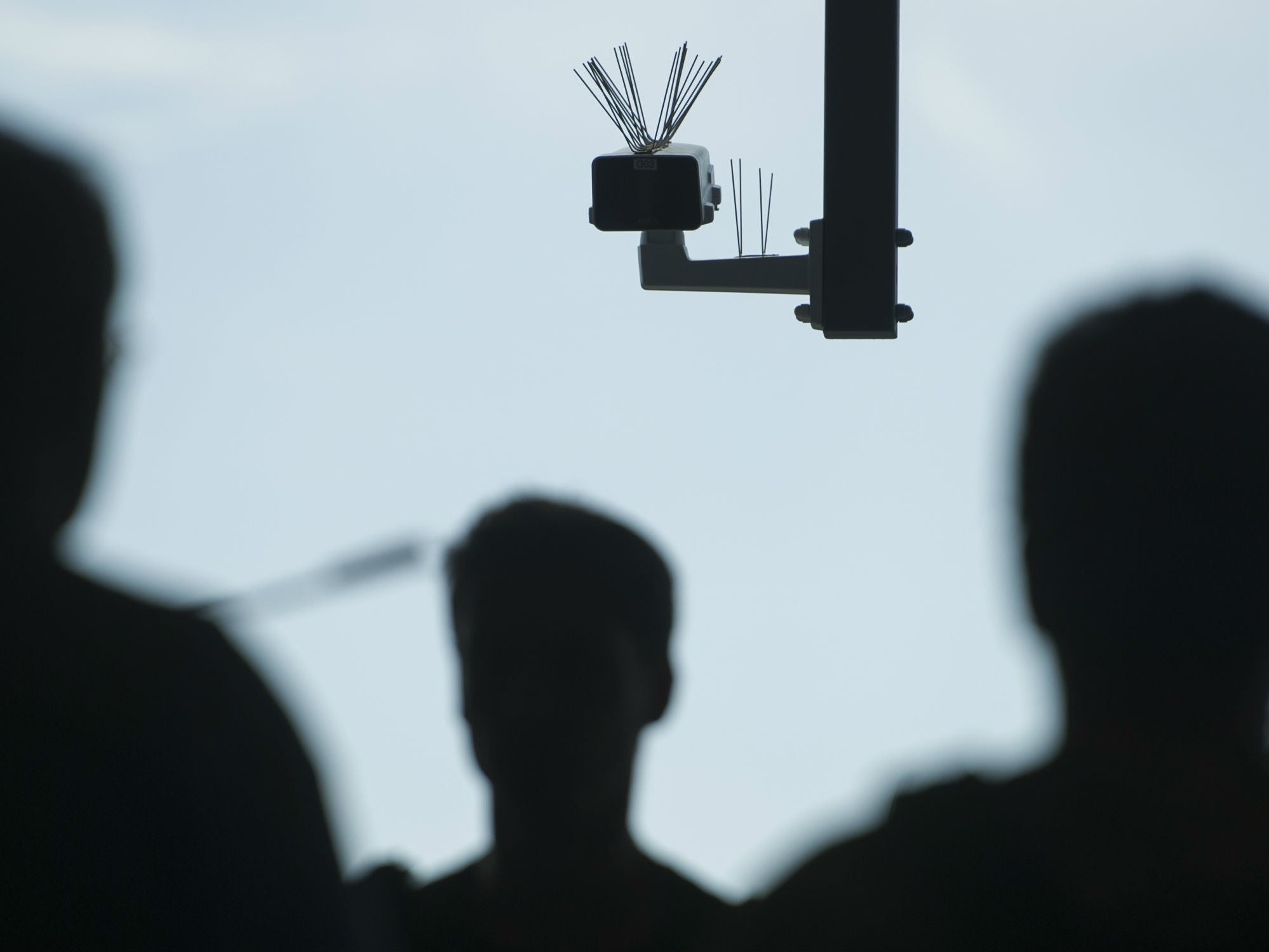Facial recognition trials should stop, MPs say
Government's failure to create legal basis for the tests 'unacceptable', says technology committee report

Your support helps us to tell the story
From reproductive rights to climate change to Big Tech, The Independent is on the ground when the story is developing. Whether it's investigating the financials of Elon Musk's pro-Trump PAC or producing our latest documentary, 'The A Word', which shines a light on the American women fighting for reproductive rights, we know how important it is to parse out the facts from the messaging.
At such a critical moment in US history, we need reporters on the ground. Your donation allows us to keep sending journalists to speak to both sides of the story.
The Independent is trusted by Americans across the entire political spectrum. And unlike many other quality news outlets, we choose not to lock Americans out of our reporting and analysis with paywalls. We believe quality journalism should be available to everyone, paid for by those who can afford it.
Your support makes all the difference.Police forces must stop using facial recognition technology until a legal framework for its use is set up, MPs have said.
A lack of legislation governing deployment of the technology calls into question the legal basis of police trials, the Commons Science and Technology Committee said in a new report.
It branded the government’s failure to implement the Forensic Science Regulator Bill “unacceptable”, and urged the Home Office to push for it to go before parliament in the next session.
The UK’s biometrics commissioner told The Independent more than a year ago that new laws were “urgently needed” because “it is important in terms of public trust that the public are clear when their biometrics might be taken and what they might be used for, and that parliament has decided those rules.”
The fledgling technology has so far returned inaccurate results the vast majority of the time.
In its report on the government’s approach to biometrics and forensics, the committee referred to tests carried out by London's Metropolitan Police and South Wales Police, noting an evaluation of both trials by the Biometrics and Forensics Ethics Group had raised questions about accuracy and bias.
Concerns were also raised that police custody images of individuals not convicted of any crime were not being deleted.
“It is unclear whether police forces are unaware of the requirement to review custody images every six years, or if they are simply ‘struggling to comply’,” the committee said. Chiefs should make instituting a practice of comprehensive manual deletion process of custody images a priority, it added.
The committee enumerated further fears about the long-term viability of the market for forensic science services, and the possible risks to the way the criminal justice system works, following an apparent near-collapse.
Committee chairman Norman Lamb said: “The proper use, provision and regulation of biometrics and forensics are key if the criminal justice system is to function effectively. It is very concerning that the forensics market has, yet again, come perilously close to collapse in the year since we published our last report.
“The government might claim to ‘strongly support’ the Forensic Science Regulator Bill but its actions do not meet its words. Now is the time for action. The legal basis for automatic facial recognition has been called into question, yet the government has not accepted that there’s a problem. It must.
“A legislative framework on the use of these technologies is urgently needed. Current trials should be stopped and no further trials should take place until the right legal framework is in place.”
A Home Office spokesman said: “We support the police as they trial new technologies to protect the public, including facial recognition, which can help them identify criminals and suspects. The government believes that there is a legal framework for the use of live facial recognition technology, although that is being challenged in the courts and we would not want to pre-empt the outcome of this case.
“However, we support an open debate about this, including how we can reduce the privacy impact on the public. In addition to existing oversight, the Home Office is reviewing options to simplify and extend the current governance to ensure that as these new technologies are developed we maintain public trust and confidence.”
Additional reporting by Press Association